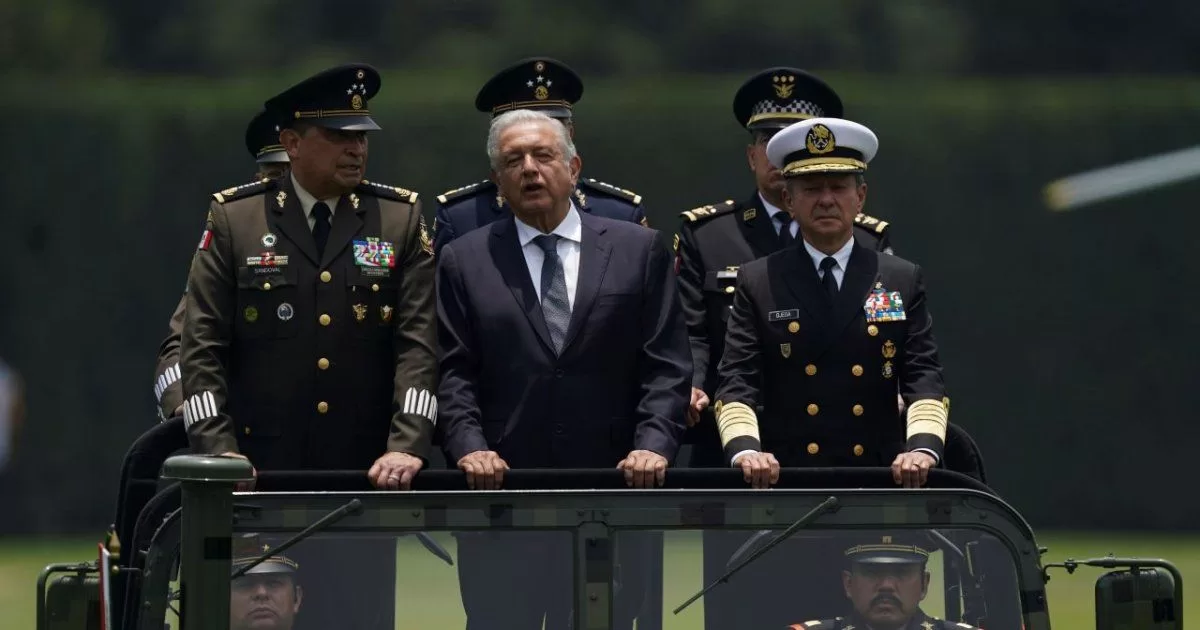MEXICO CITY – The new Mexican military airline began operations on Tuesday with a flight from Mexico City to the tourist destination of Tulum, in the Mexican Caribbean, which represents a new impetus to the militarization not only of the aviation sector but of various activities in the country.
The Army’s new commercial commitment will cover 14 routes with cheap tickets, to which four other destinations will later be added, including several tourist enclaves in the Pacific, the Baja California peninsula and the Yucatan peninsula, in the southeast of the country.
The reactivation of Mexicana de Aviación — an airline that made its first flight in 1921, was privatized in 1990 and went bankrupt in 2010 — was celebrated with great fanfare by President Andrés Manuel López Obrador who live broadcast the takeoff of the first plane during his morning press conference.
The airline will be managed by a military company that also manages airports, trains – including the tourist and controversial Mayan Train –, builds hotels and which, according to the president, also intends to be in charge of the cultural and tourist development of Mexico.
The military, an economic power
“We need a strong institution of the Mexican State to be in charge of managing all these new public works that are being done,” said López Obrador, referring to the Armed Forces.
Since taking power in 2018, The military has been adding power and functions, from security and migration control, customs and ports to the construction of large infrastructure works or the administration of certain tourist services. They now control 11 airports of the around 70 in the country, including the two in the capital.
According to General Sandoval, the incorporation of the military into the public and private productive sectors “is common in other developed countries.”
However, few – including Cuba, Sri Lanka, Argentina or Colombia – have military-run airlines, and when they do, they are usually small companies with a handful of propeller planes that operate mostly on underserved or remote domestic routes.
Investment in tourism
Mexicana de Aviación plans to transport tourists from the country’s main cities to tourist centers such as Tulum, Puerto Vallarta, Zihuatanejo, Acapulco and Mazatlán. Flights are planned every three or four days, mainly on weekends.
It started on Tuesday with five aircraft — three Boeing planes and two smaller ones from the Brazilian company Embraer for shorter routes — but another five more will be rented in the first months of 2024, Sandoval said. Its base will be the military airport of the capital, Felipe Ángeles, also managed by the Army and very little used due to its poor communications.
The company hopes to compete primarily on price: The first 425 tickets sold offered prices of about $92 for the flight from Mexico City to Tulum, which the government said was about a third cheaper than commercial airlines.
According to General Sandoval, the new airline will be “an engine of growth and development for the national airline sector” but he admitted that “it will be a great challenge” to launch it.
In August, in another press conference, he said that he intended to rent the planes with his crew and acknowledged that the airline is not expected to be financially profitable until 2030, although it will depend on the success it has among travelers.
The Mexicana de Aviación project will involve an initial investment of more than 250 million dollars, 50 of which were for the purchase of the “Mexicana de Aviación” brand and to compensate the almost 7,500 workers who were affected by the bankruptcy, he explained in August the government.
Transfers of power to military hands
López Obrador assured that the objective of all these transfers of power into the hands of the military They are to avoid corruption and that “we do not return to that very harmful period that was the neoliberal period, that of the privatization of all these assets that were public.”
According to the president, all these processes that took place at the end of the last century were a fraud for the people. But many state-owned companies had reputations for inefficiency, poor service, corruption and political control.
For example, the company that distributed the paper sometimes refused to sell newsprint to opposition newspapers. And when the telephone company was state-owned, customers had to wait years for a line to be installed and were required to buy shares in the company to finally get service.
López Obrador has always been in favor of “strengthening” state companies – for example, he prioritized state energy companies despite questions about free competition – and seems willing to continue recovering the services that are possible “little by little, without violating the legal framework, to the extent of our possibilities, as the people decide,” he indicated on Tuesday.
Source: With information from AP

